How Will DPDPB (Digital Personal Data Protection Bill-2023) Shape the Future of Healthcare Data Privacy?
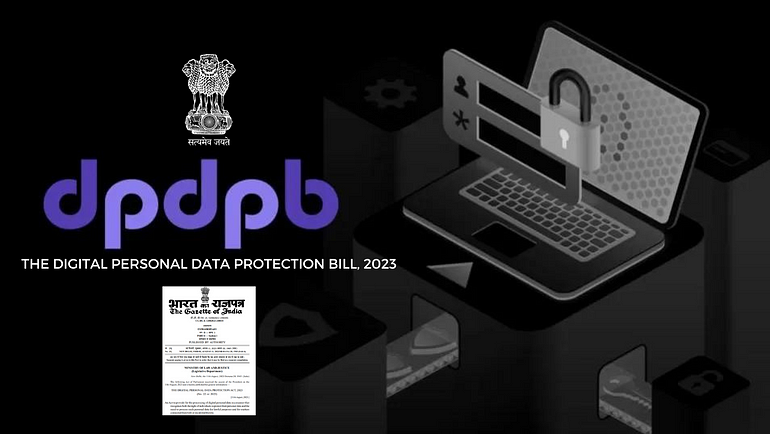
In an age dominated by technological marvels and the relentless march of digital transformation, safeguarding personal data has taken center stage. With the advent of the General Data Protection Regulation (GDPR) in the European Union in 2018, the world witnessed a pivotal moment in data protection. This global awakening ignited discussions and deliberations, leading to the birth of comprehensive data privacy legislation in various corners of the globe.
What is the DPDP Act?
India, too, recognized the urgency of addressing this critical issue and took a significant step forward in 2019 with the introduction of the Personal Data Protection Bill. After undergoing a series of meticulous revisions and updates, this landmark legislation has emerged as The Digital Personal Data Protection Bill, 2023 (hereafter referred to as “DPDPB, 2023”).The Digital Personal Data Protection (DPDP) Act is a comprehensive framework designed to protect the privacy and security of personal information belonging to Indian citizens. It achieves this goal by implementing stringent regulations for data protection. This new legislation empowers individuals with increased control over their data and governs the practices of businesses in collecting, processing, storing, and sharing their customers’ personal information.
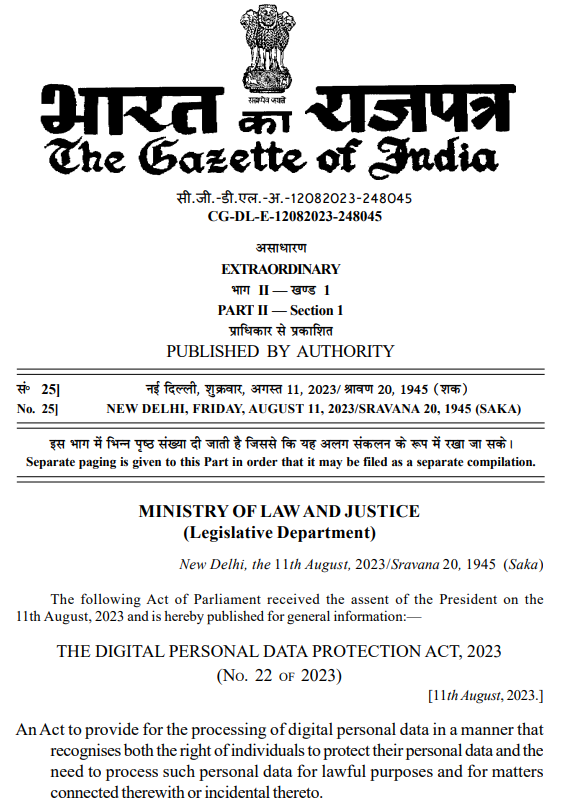
What is “Personal Data?
Personal data encompasses any information, such as a person’s name, address, contact details, medical records, bank information, and data collected through online trackers and smart devices, which can identify an individual, either directly or indirectly.
5 stakeholders of the DPDP Act
- Data Principal –Indian citizens whose personal data is being processed.
- Data Fiduciary –Individual/Business /Govt. body, based in India or operating from a foreign location, who process personal data of Indian citizens to offer them goods or services.
- Data Processor –Person/company appointed by a Data Fiduciary to process data.
- Data Protection Officer –Individual appointed by a Data Fiduciary to monitor DPDP Act compliance.
- Data Protection Board of India –Apex body in charge of the enforcement of the DPDP Act
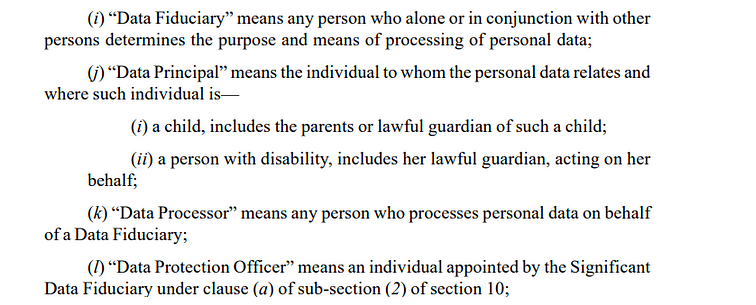
Privileges of Data Principal under the DPDP Act
- Right to access personal information
- Right to consent and withdrawal of consent
- Right to correction or erasure
- Right to nominate
- Right to grievance redressal
7 principles of the DPDP Act every Data Fiduciary should adhere
- Usage limited to the purpose of collection
- Data minimization (no duplication)
- Collection of relevant data only
- Storage limited only to a fixed duration
- No unauthorized collection or processing
- Accountability lies with the processing individuals/entities
- Rightful usage of personal information
What are the reasons for your business to adhere to the DPDP Act?
Data Privacy Protection- Complying with the DPDP Act ensures the safeguarding of individuals’ personal data against unauthorized access, misuse, and data breaches, thereby nurturing customer trust.
Legal Obligation- It is obligatory for all organizations handling personal data to adhere to the Digital Personal Data Protection Law in order to steer clear of legal repercussions.
Business Reputation- Non-compliance can mar an organization’s reputation, resulting in a loss of customer trust and potential business opportunities.
Avoiding Fines and Penalties- Neglecting compliance with the Digital Personal Data Protection Law can result in substantial fines, which can go as high as 250 crores, significantly impacting the financial health and business continuity of an organization.
How your business can comply with the DPDP Act
- Identify Data Collection-Recognize and document the personal data you collect and process from customers.
- Obtain Consent– Prior to collecting or processing personal data, obtain clear and informed consent from individuals.
- Data Security– Maintain robust security measures to safeguard personal data and regularly assess potential risks.
- Data Retention– Delete personal data when it is no longer necessary for the intended purpose.
- Customer Requests– Responsively address customer requests for access, correction, or deletion of their personal data.
- Independent Audits– Subject your data processing policies and procedures to assessment by independent auditors.
- Data Protection Officer– If classified as a Significant Data Fiduciary, appoint a Data Protection Officer.
- Grievance Redressal– Establish an effective grievance redressal process for handling data-related concerns.
- Anomaly Reporting– Promptly report any data privacy anomalies to the Data Protection Board of India.
DPDPB, 2023, A Beacon of Privacy
The DPDPB, 2023 represents a monumental step towards fortifying individual privacy rights in the digital era. Its significance transcends mere legislation; it’s a digital shield designed to protect us from the perils of data breaches and privacy invasions.
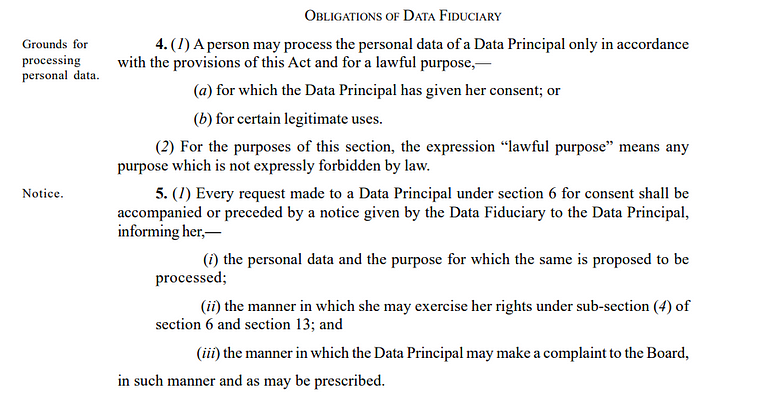
Empowering Patients
One profound outcome of DPDPB, 2023 is the empowerment of patients. It grants individuals the right to access their health records, request corrections, and even seek data deletion under certain circumstances. This shift in power dynamics encourages patients to become active participants in their healthcare decisions and strengthens patient-provider relationships.
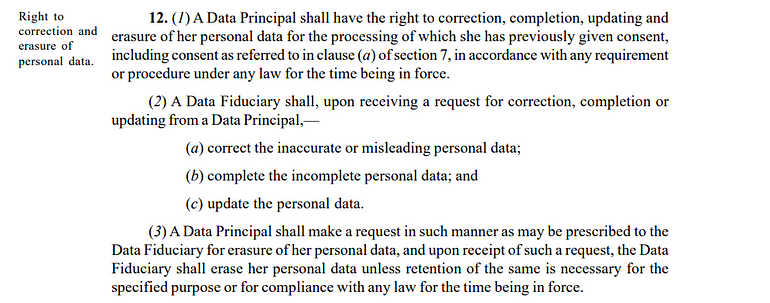
Patient Privacy at the Helm
DPDPB, 2023 stands as a guardian of patient privacy. It underscores the necessity for explicit consent before collecting, processing, or sharing any personal health-related information. This elevated focus on data security aligns seamlessly with the core principles of medical ethics, fostering a deeper wellspring of trust within healthcare systems.

Navigating Compliance Challenges
Yet, there are challenges to overcome. The healthcare sector, in particular, will need to adapt to the bill’s rigorous compliance requirements. Investments in cutting-edge data management systems, encryption technologies, and cybersecurity measures are the order of the day. And in the whirlwind of emergency medical situations, securing informed consent from patients may introduce complexity into the equation.
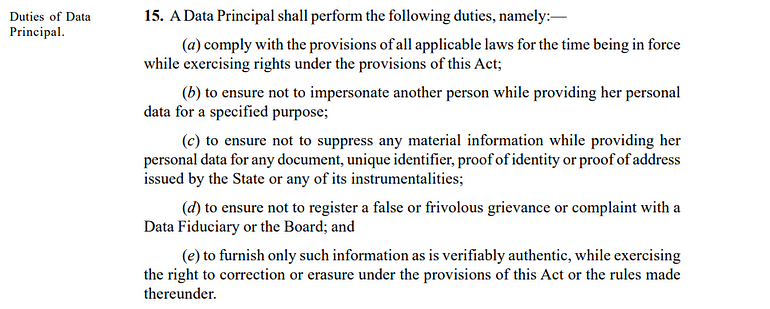
Telemedicine and Beyond
The rise of telemedicine, especially in the global pandemic, has been meteoric. DPDPB, 2023 will influence how patient data is transferred and stored during telehealth consultations. Providers and technology platforms must ensure that data transfers adhere to the bill’s stringent provisions to sidestep potential legal entanglements.

Shaping a Secure and Privacy-Conscious Future
In conclusion, The Digital Personal Data Protection Bill, 2023 heralds a new era in the management and safeguarding of personal data, particularly within the healthcare domain. Prioritizing data security, patient consent, and interoperability, this bill ushers in a transparent, patient-centric healthcare landscape. While challenges may loom on the path to implementation, the bill’s potential to enhance trust, streamline data management, and propel healthcare innovation is undeniable. As the healthcare sector evolves in the digital age, the impact of this legislation will be instrumental in shaping a future that is both secure and privacy-conscious.


Author –Ragesh R
IT professional specialized in healthcare technologies with over two decades of experience. He also has a fondness for photography, traveling, designing, painting, and sharing knowledge.





